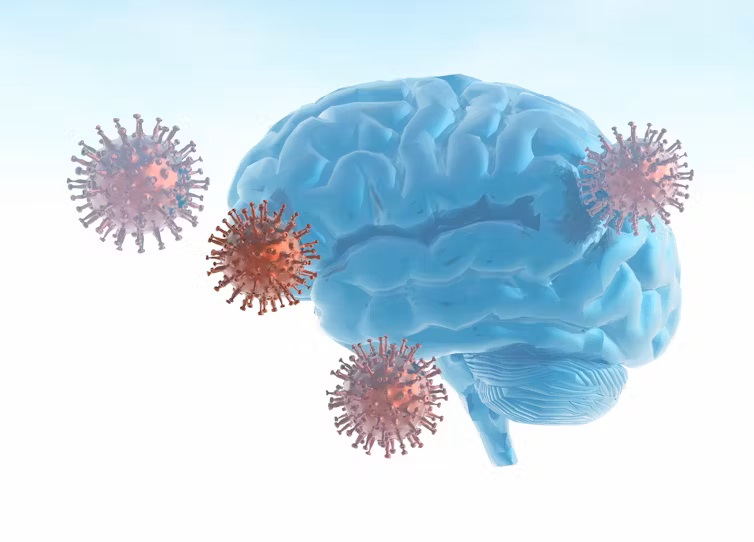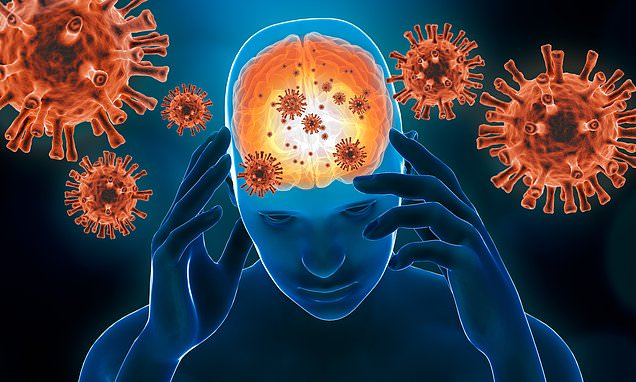United States: The genesis of COVID-19 circa 2019 ushered forth an array of peculiar manifestations beyond mere pulmonary afflictions. Among the enigmatic symptoms in those nascent phases was a phenomenon termed “cerebral mist” — cognitive anomalies such as perplexity, amnesia, and cognitive agility impediments.
While the viral mutations have altered other symptoms, cerebral mist persists as a prevalent grievance among COVID patients, lingering not only during the initial ailment but extending into months or even years thereafter. Several recent inquiries endeavor to fathom precisely the cerebral impact of this virus and strategies to mitigate it, according to reports by cbc.ca.
Dr. Ziyad Al-Aly, the principal investigator of research and innovation at the VA St Louis Health Care System, engaged in a dialogue with Quirks & Quarks presenter Bob McDonald concerning his investigations into COVID and cerebral health. Here, we excerpt a portion of their discourse.
A prominent repercussion of SARS-CoV-2 contagion is colloquially dubbed cerebral mist. This denotes a cognitive obscurity, an incapacity to recollect, to discern patterns, to cogitate lucidly.
Apart from cerebral mist, a resurgence of patients in clinical settings exhibits mini cerebrovascular accidents. Instances of cephalalgia disorders, somnolence disturbances, and paresthesia in the extremities, particularly legs or occasionally arms, are observed. In isolated cases, epileptic episodes occur. Thus, a spectrum of cerebral health maladies is discernible.

Does COVID indeed impair cerebral functionality?
Comparative analyses between COVID-19-affected individuals and uninfected counterparts, followed by cognitive assessments to gauge cognitive processing and intelligence, evince conspicuous disparities in cognitive aptitude. Even mild instances of COVID engender approximately a three-point decrement in intelligence quotient.
However, it’s imperative to note the caveat of these studies, primarily conducted during the initial pandemic phase devoid of vaccinations and antiviral treatments. Furthermore, the durability of these cognitive declines remains uncertain.
What is cerebral senescence?
Evidently, certain individuals evince structural aberrations and imaging irregularities akin to a seven-year acceleration in cerebral aging experienced by the general populace, as reported by CBC.
Optimistically, the anticipation rests on the transience of these effects, with cerebral plasticity and other mechanisms facilitating restitution to normalcy. Nevertheless, further investigations are requisite to ascertain the veracity of this conjecture.
How does a pulmonary virus elicit such profound cerebral repercussions?
It instigates cerebral inflammation. Investigations affirm a propensity to provoke neuroinflammatory responses, elucidating certain symptomatic manifestations.
Moreover, it impairs numerous substrates pivotal for cerebral homeostasis. Notably, cortisol levels are impacted, with studies demonstrating a suboptimal cortisol milieu post-SARS-CoV-2 infection. Given cortisol’s significance in cognitive functionality, its depletion elucidates certain cognitive impairments. Analogously, diminished serotonin levels account for certain symptoms.
Yet, does not the blood-brain barrier confer protection?
Inflammatory cascades compromise its integrity, fostering a permeability that facilitates the influx of deleterious substances into the brain and the egress of substances from the brain, exacerbating post-COVID manifestations.
How does this dynamic evolve with viral mutations?
We traverse a distinct pandemic epoch, distinguished by vaccine accessibility and antiviral interventions, attenuating the onus of long COVID. Notwithstanding, the peril of SARS-CoV-2 infection endures, albeit mitigated, manifesting in cerebral, cardiovascular, and pulmonary afflictions, as mentioned by CBC.
Are these sequelae exclusive to COVID?
The epiphany of this pandemic lies in the revelation of a panoply of enduring adversities post-SARS-CoV-2 infection, akin to historical accounts of post-Spanish flu. The implications underscore the protracted repercussions of pandemics, extending beyond the acute phase to encompass a latent corpus of infirmity and debilitation.





